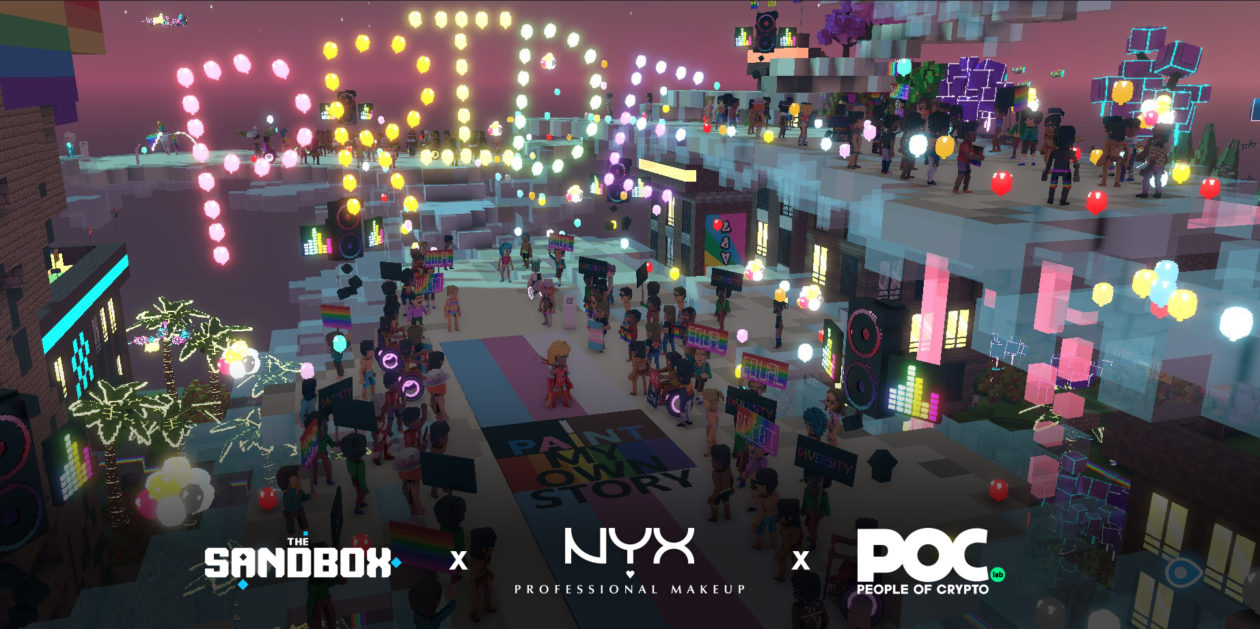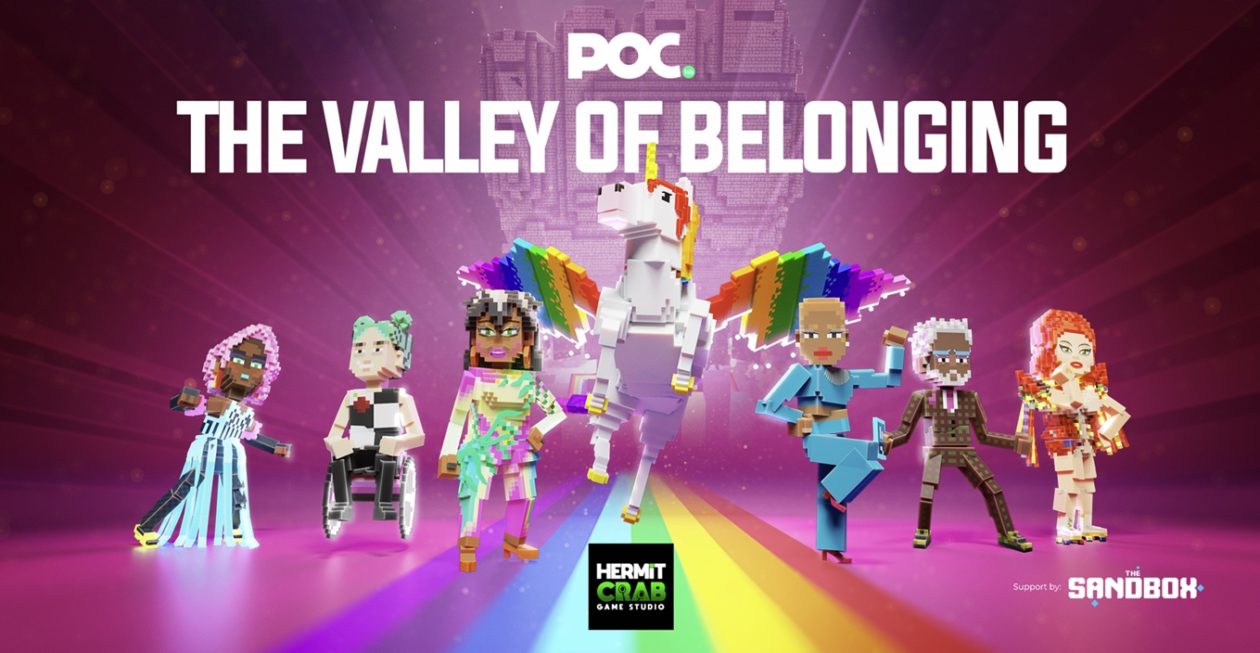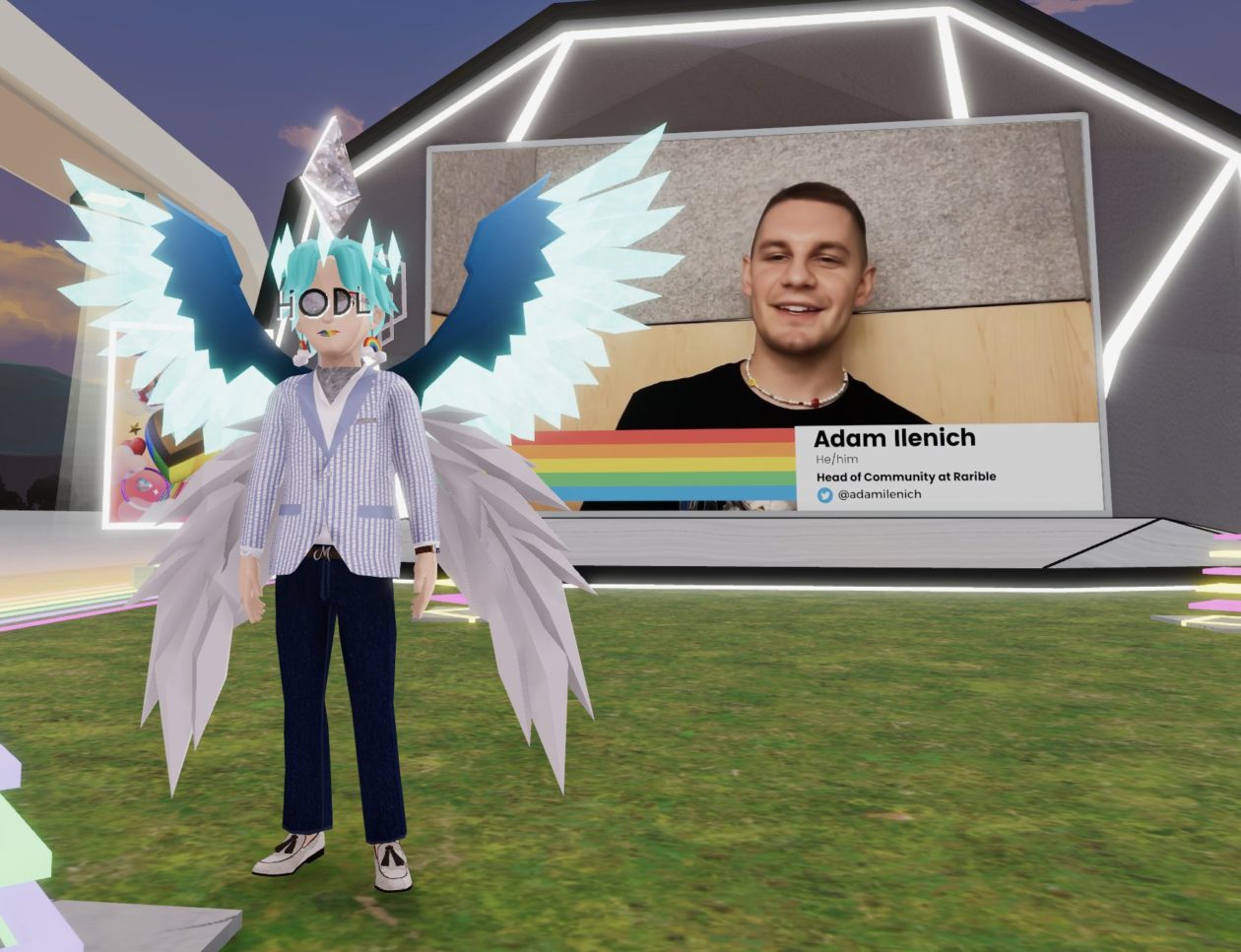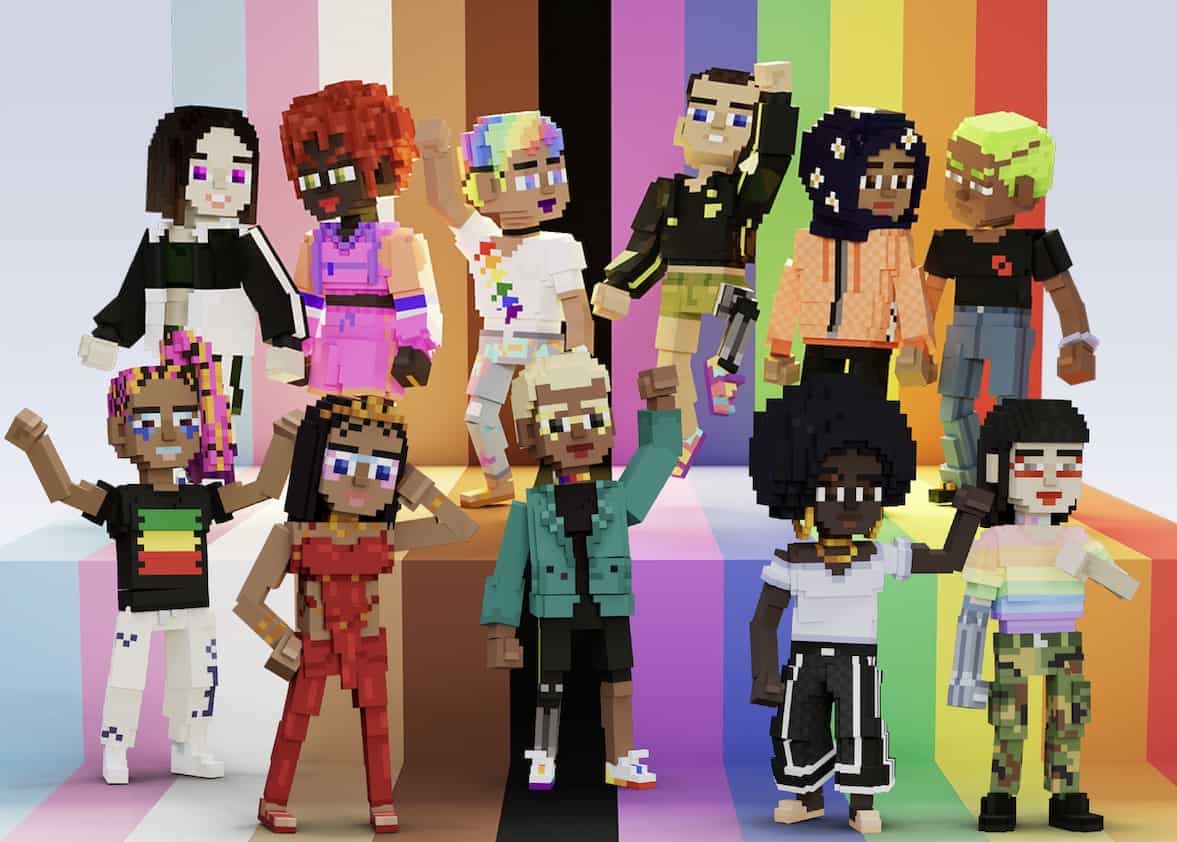The New York City Pride March kicks off on June 26 and typically attracts as many as 2 million participants and spectators to make it the largest event for the LGBT community in North America. This year, it’s also happening in the metaverse and not just in June.
As concerts and performances take place in real life on streets and venues in New York next week, MetaPride Land, a metaverse LGBT event organizer, is hosting a series of celebrations in the Sandbox and Decentraland.
MetaPride Land founder Matt Stevenson, a former media executive at Time magazine, said the metaverse opens up doorways to a much broader community regardless of geographic location and circumstances.
“There are still 68 countries across the world where it’s illegal to be gay. In the United States, there are over 200 bills that are targeting our community in some way, shape or form,” Stevenson told Forkast. “It felt really important that going into this June, we provide a space that’s accessible regardless of where you are, to come in and celebrate your life.”
Stevenson said that he’d like to build a space in the metaverse that resembles real-life LGBT centers where queer people can come to seek resources, such as counseling services.
He isn’t the only one with such ideas about how the metaverse as a technology of the developing Web 3.0 iteration of the internet can offer opportunities for marginalized communities to connect and freely express themselves.
Decentraland and the Sandbox, the two leading developers in the metaverse, are organizing pride events to coincide with New York celebrations.
People of Crypto, a metaverse innovation lab based in New York, plans to use June to airdrop 8,430 NFT avatars for use in the Sandbox, which will feature various styles, sexualities and skin shades.
People of Crypto and the Sandbox plan to launch “The Valley of Belonging” on June 24 to build what it calls a “cultureverse” that invests in and promotes projects that represent people of color and LGBT creators.
Decentraland will host a series of events and panel discussions in its virtual world, with topics covering LGBT inclusion and financial empowerment for queer people.

“I firmly believe that Web3 can only scale if diversity and inclusion are rooted at the foundation of what is being built,” Simone Berry, co-founder of People of Crypto, told Forkast in an interview.
“Through offering different narratives, creating a game that really promotes your authentic self, non-player characters that are in wheelchairs, nonbinary black characters and LGBTQ characters, we’re able to actually customize our avatars so that you can self-identify,” Berry said.
Akbar Hamid, another co-founder of People of Crypto, said the team had been in the Web3 industry for a long while and “we’ve seen the lack of diversity in the space.”
Beside creating NFT avatars, People of Crypto is developing a game to live in the Sandbox, where gamers go through quests to learn to express themselves.
“Our game is a social experience,” said Berry, adding that gamers go through different phases to interact with non-player characters, and talk about differences and identity.
“We understand that gaming is predominantly a white male place, but that’s probably mostly because the stories are also built for that,” she said.

Stevenson at MetaPride Land said it can take a lot of courage for queer people to step into a physical building to connect with each other, and for many, the internet becomes the first and only safe space for them to interact.
“What we love about what Web3 and the metaverse provides is that level of autonomy, but also the safety from experiencing it from your home,” Stevenson said.
“Many of us don’t feel safe even leaving our homes, leaving our bedrooms, or engaging with our families or friends for fear of oppression and not being accepted.”
David Cash, CEO of Cash Labs and an event curator for Decentraland, told Forkast that the metaverse allows community to happen “in a more tangible way” compared to other online platforms.
On a more practical level, Cash said, “what if you live in Saudi Arabia or a country where being queer is chastised, and what if you can’t celebrate pride openly and publicly and in your own skin?”

As Web3 progresses, it’s important to ensure representation in the early stage of development, Stevenson said.
“As we engage more queer individuals or disenfranchised individuals in these spaces, at least we’ll have a voice in how things should be built, to make sure that we are represented or our best interests are represented as these platforms are being built,” Stevenson said.
“I still feel like oftentimes our communities are just being leveraged to check that [diversity] box.”
While June has become a significant month for the LGBT community with all kinds of celebrations, the advocacy should not just end there, according to Cash and Stevenson.
“Every June, you have a lot of brands and businesses and companies and corporations that come in and throw rainbow flags all over their logos and sell products that are targeted to our community,” Stevenson said. “And then once June is over, all of those things kind of disappear.”
“It can’t end there,” said Cash, who helps Decentraland organize LGBT events and panel discussions in the metaverse.
“For queer people, we’re queer 365 days of the year. We don’t turn it off when June ends.”





